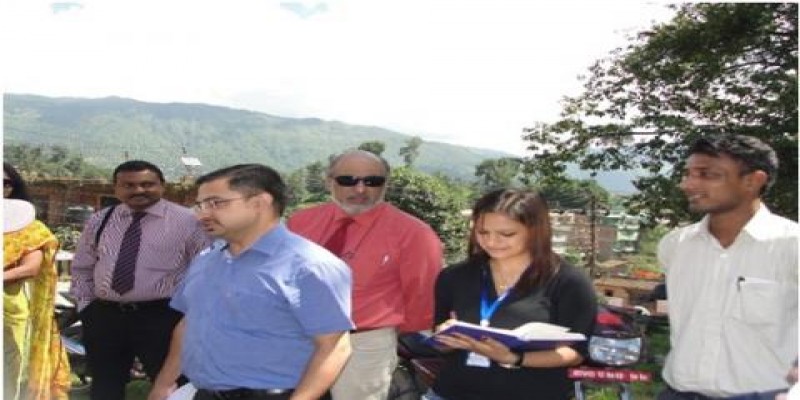
WHO WR Sri Lanka and WHO Nepal's visit to Gokarna PHCC in Kathmandu (a study site of HERD)
Date of visit: 4th September, 2014
Team members:
Sri Lanka Team
Dr Firdosi Rustom Mehta - WHO Representative to Sri Lanka
Dr Lanka Dissanayake - National Professional Officer - Non Communicable Diseases
Dr Palitha Karunappema - Deputy Director - Ragama Rehabilitation Hospital
Dr Asanka Ratnayake - Senior Consultant General Physician, Colombo South Teaching Hospital
Dilip Hensman - National Professional Officer - Health Information Systems
Nepal Team
Ravi Kafle: National Professional Officer
A team of the World Health Organisation, Sri Lanka and Nepal visited the Gokarna Primary Health Care Centre (PHCC) in Kathmandu, one of the study sites of the tobacco cessation study in HERD. The team was led by World Representative, Sri Lanka and the major objectives of their visit were:
- To understand the health system of the country and its functioning
- To understand the situation of Non Communicable Diseases (NCDs) and how they are dealt with in the peripheral level care.
- To explore the possibilities and ways of integration of NCDs into the routine primary care system
The programme started by a brief explanation of the health system of Nepal by Dr. Ravi Kafle, National Professional Officer, WHO Nepal. This was followed by a detailed tour of all the sections of the PHCC guided by the PHCC in-charge, Ms. Kalpana Pandey and the Medical Officer, Dr. Swikriti Shrestha. The areas visited included Family Planning and Counselling, laboratory facility, tuberculosis clinic, and the OPD. The discussions focused on the services provided by the PHCC with a special focus on NCDs. HERD researchers were then asked to briefly explain about the smoking cessation project that was piloted in the PHCC in 2013. The details of the project, its aim, implementation, challenges faced during the implementation and preliminary findings were explained to the team.
The WHO team, Sri Lanka as well as Nepal appreciated the PHCC staff and HERD for their contribution to improving the health service delivery.









Comments(0)
No comments found.